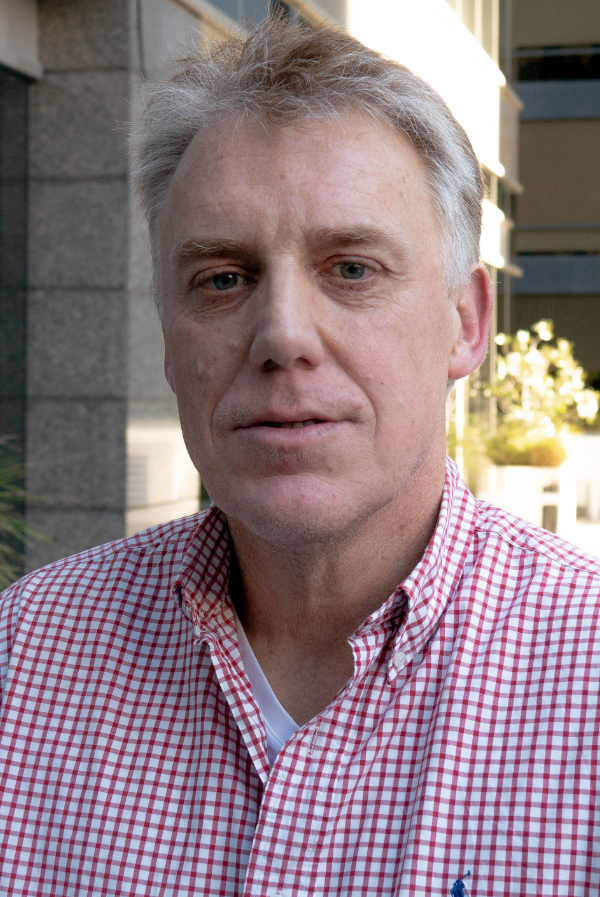Don't hate me, I'm a grantwriter
Posted on 10 Dec 2018
The founder and director of Grant Professionals, Robert Palmaricciotti, provides specialist grant writing services for sporting clubs seeking grants. He spoke to Grants Management Intelligence after his forthright presentation at the recent Grantmaking in Australia conference, where he argued that his organisation, and others like it, are helping to improve the grantmaking industry.
GMI: Many grantmakers don't like idea of grantwriters making applications. What do you say to them?
We work really well with lots of grantmakers, but there are pockets that I think are a little bit suspicious. I think there's a misunderstanding or misconception of what we do, that we're forcing ourselves on them [grantseekers]. But the reality is that these grant applicants aren't as familiar as the grant makers - the providers - with the guidelines, how to apply. They haven't got the time, or inclination as well. Let's be honest, it's pretty boring!
GMI: Why use your services?
The analogy I've always got for grant applications is that it's like doing a tax return. You can use an accountant, or you can do it yourself. And a lot of people won't do their tax because it's just difficult.
Also, grant providers often live in their own world ... in their grants. But remember that there are a lot of grants out there. Our organisations [clients] apply for 10 to 15 grants a year, and every grant is very different.
The grant provider may say, "My grant is easy. I'm not sure what's so difficult about it; why are they using a grant writer?" But once you finish with that grant, you're onto another one. So it's a bit like doing 15 tax returns a year, each from a different country.
I don't think it's easy. There are already some people within organisations who do grants themselves. And so some decide to outsource, and some don't. I think we should be - as an industry - making people feel comfortable to outsource if they want. And there'll be more grant applications and more grants distributed to organisations.

GMI: Tell us about your hit list of not-so-good-practice grantmaking.
We've probably dealt with 100 grant providers, and we see what's really best practice and what's not.
Number one is probably having a full electronic process. With some grant providers, everything is electronic: the form, the acquittal, the approval, the funding agreement, bank details. It's all electronic.
Then with other grant providers, the initial part might be electronic, such as the form, but then notification is manual - it's posted out. Often, the funding agreement is posted out and a signature is required for it to come back. In some cases, in the grant application, they'll require you to scan a signature and attach it. I'm not sure why.
The lengthy process is a big issue. Sometimes a grant can take up to a year, from the application to receiving the money. Surely we can do better than that. Best-practice grant providers can take a month to two months.
The number of documents required: are they really needed? Do we really need an AGM report, financial statements, insurance certificate, incorporation certificate for a $1000 grant? Best-practice grant providers ask for very little; perhaps the incorporation number rather than the actual certificate. Could grant providers look it up? Many just get the grant applicant to do more work.
The best and worst of grantmaking: a grant writer's view
Mr Palmaricciotti's tips for good grantmaking
- Aim for shorter processes for applications, assessments, notifications, funding agreements and payments.
- Fully electronic processes are better for applications, signatures, funding agreements, etc. This includes online forms that can be saved in draft form, avoiding lost paper forms.
- Demand fewer documents for applications, rather than multiple quotes, financial statements, constitutions, articles of association and more.
- Issue more frequent grant offerings instead of annual grants only.
- Provide "prompt and honest notification" instead of "irrelevant general statements" to unsuccessful applicants.
- Employ "knowledgeable, helpful and proactive grants officers".
- Ensure the first rounds of new grants are well-considered and tested before being rolled out. Don't rely on "trial and error".
- Conduct a grants celebration for successful recipients.